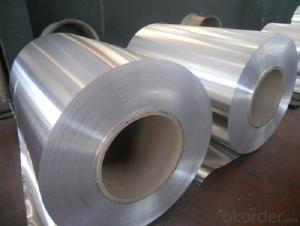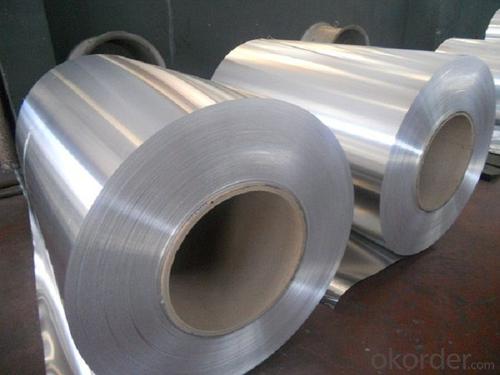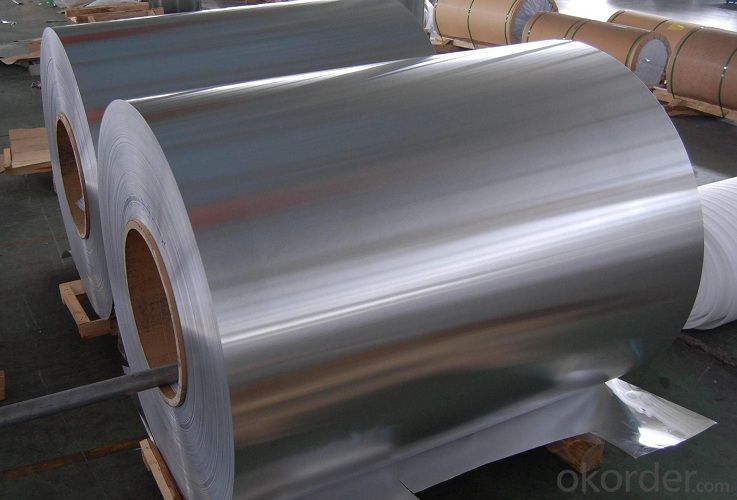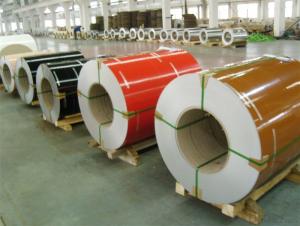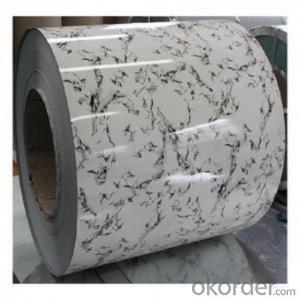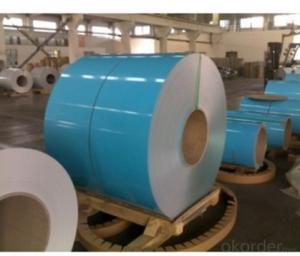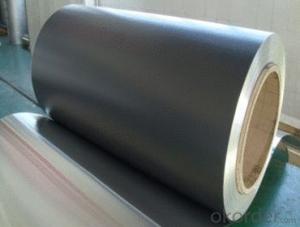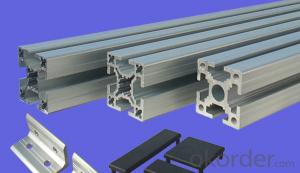PVDF Color Coated Aluminum Coil - Wide Range, ISO9001 Certified
- Loading Port:
- Shanghai
- Payment Terms:
- TT OR LC
- Min Order Qty:
- 2.5
- Supply Capability:
- 5000 m.t./month
OKorder Service Pledge
OKorder Financial Service
You Might Also Like
Specification
Pipeelines Covered Roofing Aluminium Coil
l Product Information
1 | Alloy | A1100 A3003 H16 H18 etc |
2 | Thickness | 0.022mm-1.5mm |
3 | Width | 200mm-1600mm |
4 | Standard width | 1240mm 1250mm 1260mm |
5 | Coating face | PE or PVDF |
6 | Gloss | meet the customer requirement |
7 | PVDFcoating | more than 25 micron |
8 | PE coating | more than 18 micron |
9 | Surface treatment | brushed |
10 | Colors | various colours to choose |
11 | Application | Acp, HPL, fireproof board, building decoration materials etc |
12 | Features | anti-corrosion durable |
l Packaging & Delivery
Packaging detail: Sea Worthy Wooden pallet
Delivery detail: About 25 days
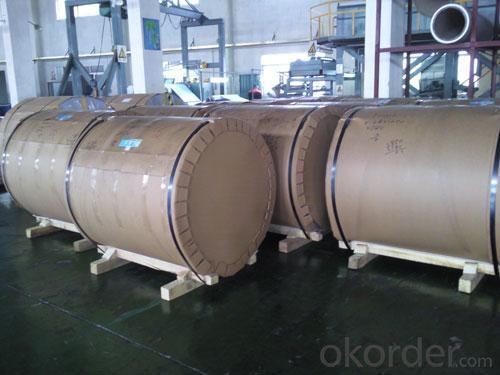
l Company Profile
CNBM International Corporation, China National Building Materials (Group) Corporation, is one of the largest companies in China building material & equipment industry, with 42,800 employees and sales in 2005 of US Dollar 4.395 billion. In 2006, China National Building Material Company Limited was listed on Hong Kong Stock Market with the stock code as 3323.
Aluminium Products have been our featured products. We have specialized in aluminium products for about a decade and have sold our good quality aluminium products to the worldwide.
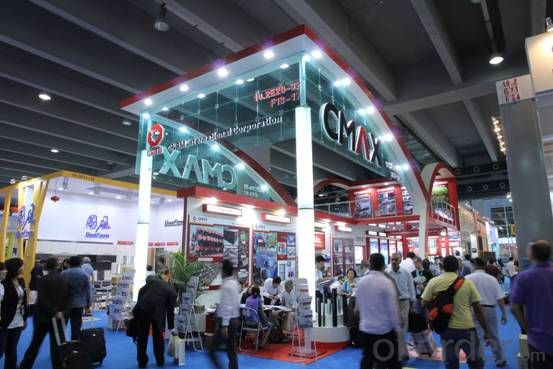
l CNBM World Wide
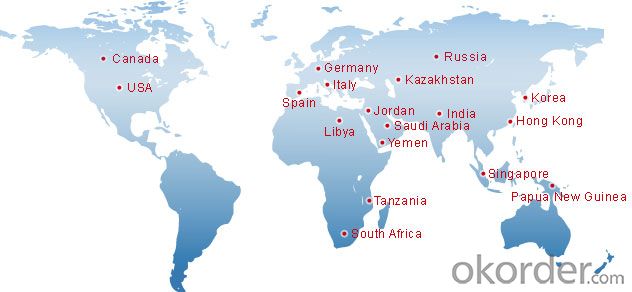
l Product Images
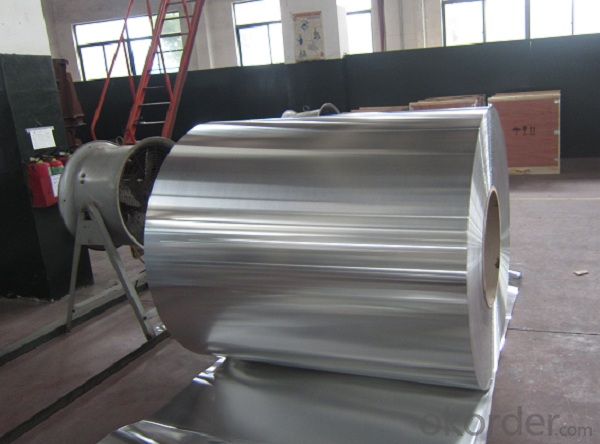
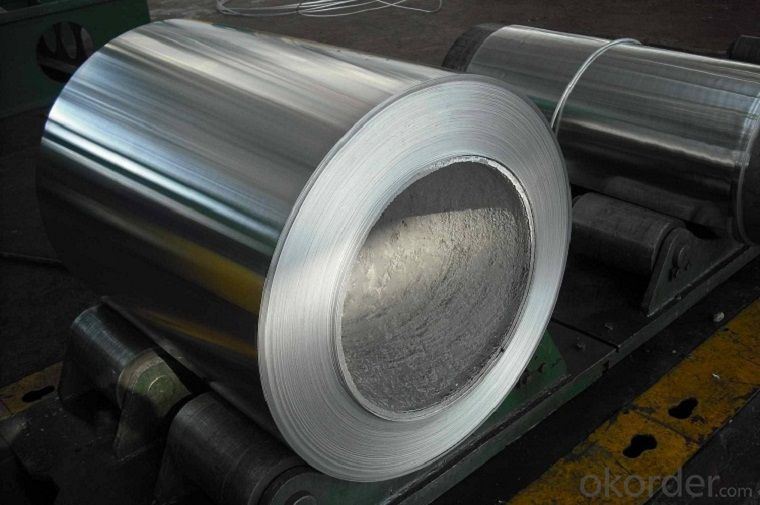
l Certificates
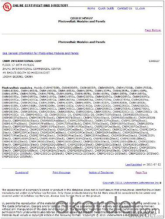
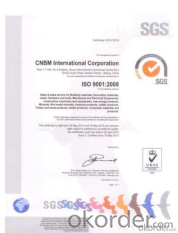
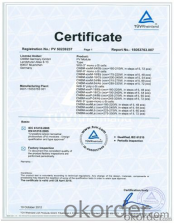
l FAQ
Q: Do you provide free samples?
A: Yes, free samples will be sent to you on freight at destination.
Q: Can I get your latest products catalogue?
A: Yes, it will be sent to you in no time.
Q: What is the MOQ?
A: 2.5 tons
Q: What are your payment terms?
A: We accept L/C, T/T.
- Q: What are the common applications of aluminum coils in the aerospace industry?
- Aluminum coils are commonly used in the aerospace industry for various applications such as constructing aircraft frames, manufacturing wings, building fuselages, and designing engine components. The lightweight yet strong nature of aluminum makes it an ideal choice for these purposes, as it helps reduce overall aircraft weight, enhance fuel efficiency, and improve performance. Additionally, aluminum's corrosion resistance properties play a crucial role in ensuring the longevity and durability of aerospace structures.
- Q: How are aluminum coils used in the production of solar panels?
- Aluminum coils are used in the production of solar panels primarily for the purpose of providing structural support and durability. These coils are often used as a backing material or frame for the solar cells, ensuring they are securely held together and protected from external elements. Additionally, aluminum coils are lightweight, corrosion-resistant, and easily malleable, making them an ideal choice for the manufacturing of solar panels.
- Q: What is the hardness range of aluminum coils?
- The hardness range of aluminum coils can vary depending on the specific alloy and temper. Aluminum coils can be produced in a wide range of hardness levels, from very soft to very hard. The hardness of aluminum is often measured using the Rockwell or Brinell hardness scales. Soft aluminum coils typically have a lower hardness range, ranging from 20 to 40 on the Rockwell scale. These soft coils are commonly used in applications where flexibility and formability are important, such as packaging, insulation, and electrical wiring. Hard aluminum coils, on the other hand, have a higher hardness range, typically ranging from 40 to 70 on the Rockwell scale. These coils are more rigid and have better mechanical properties, making them suitable for applications that require strength and durability, such as automotive parts, construction materials, and aerospace components. It is important to note that the specific hardness range of aluminum coils can also be influenced by factors such as the rolling process, heat treatment, and alloy composition. Therefore, it is always recommended to consult the manufacturer or supplier for the specific hardness range of the aluminum coils being considered for a particular application.
- Q: This question asks for the method to calculate the volume of an aluminum coil given its size.
- <p>To calculate the volume of an aluminum coil, you need to know its dimensions: the length of the coil, the diameter of the wire, and the number of turns. The volume can be calculated using the formula for the volume of a cylinder, adjusted for the coil's shape. The formula is: Volume = 蟺 * (diameter/2)^2 * length * number of turns. Here, 蟺 is approximately 3.14159, diameter is the diameter of the wire in the coil, length is the total length of the coil, and the number of turns is the number of times the wire is wound around the coil. This formula gives you the total volume of the aluminum in the coil.</p>
- Q: What are the different alloys used for aluminum coils?
- There are several different alloys used for aluminum coils, including 1100, 3003, 5052, and 6061. Each alloy has its own unique properties and characteristics, making them suitable for various applications. For example, 1100 is often used for chemical and food processing equipment, while 3003 is commonly used in heat exchangers and cooking utensils. 5052 is known for its high corrosion resistance and is often used in marine and transportation industries. Lastly, 6061 is a versatile alloy used in structural components, aerospace applications, and automotive parts.
- Q: Are there any environmental benefits to using aluminum coils?
- Yes, there are several environmental benefits to using aluminum coils. Firstly, aluminum is a highly sustainable material as it is 100% recyclable without losing its original properties. This means that using aluminum coils helps reduce the demand for mining and extracting new raw materials, reducing the environmental impact associated with these processes. Additionally, recycling aluminum requires only about 5% of the energy needed to produce primary aluminum, resulting in significant energy savings and reduced greenhouse gas emissions. Moreover, aluminum coils have a longer lifespan compared to other materials commonly used in coils, such as copper or steel. This durability means that fewer coils need to be manufactured and replaced over time, resulting in less waste generation and lower overall environmental impact. Furthermore, aluminum is corrosion-resistant, which eliminates the need for additional treatments or coatings that may contain harmful chemicals. This reduces the release of potentially hazardous substances into the environment during the manufacturing and use of aluminum coils. Lastly, aluminum is lightweight, which contributes to lower transportation costs and energy consumption during distribution. This aspect decreases fuel consumption and associated emissions, reducing the overall carbon footprint of using aluminum coils. Considering these factors, the use of aluminum coils provides significant environmental benefits, including reduced resource extraction, energy conservation, waste reduction, and lower emissions.
- Q: How are aluminum coils protected against transportation damage?
- Aluminum coils are protected against transportation damage through various measures such as packaging them in sturdy materials like wooden crates or steel frames, securing them with straps or bands to prevent movement, and adding cushioning materials like foam or airbags to absorb shocks and vibrations during transportation. Additionally, protective films or coatings may be applied to the surface of the coils to safeguard them against scratches or abrasions.
- Q: I have aluminum windows that have to be replaced due to bad thermopanes - there is accumulated grime and humidity in between the panes. Is it possible to buy individual custom-sized replacements or do I have to get all new windows and frames? Any referrals would be helpful.
- you can just get the panes cleaned and restored you could even do it yourself, they are just two sheets of glass stuck to a frame
- Q: How are aluminum coils protected from corrosion?
- Aluminum coils are protected from corrosion through various methods, including the application of protective coatings such as paint or anodizing, using corrosion-resistant alloys, and applying a layer of zinc through a process called galvanizing. These protective measures create a barrier between the aluminum surface and external elements, preventing corrosion and extending the lifespan of the coils.
- Q: Can aluminum coils be used in the manufacturing of cans?
- Yes, aluminum coils can be used in the manufacturing of cans. Aluminum coils are commonly used in the canning industry as they are lightweight, durable, and provide excellent sealability, ensuring the freshness and preservation of the contents.
Send your message to us
PVDF Color Coated Aluminum Coil - Wide Range, ISO9001 Certified
- Loading Port:
- Shanghai
- Payment Terms:
- TT OR LC
- Min Order Qty:
- 2.5
- Supply Capability:
- 5000 m.t./month
OKorder Service Pledge
OKorder Financial Service
Similar products
Hot products
Hot Searches
Related keywords
